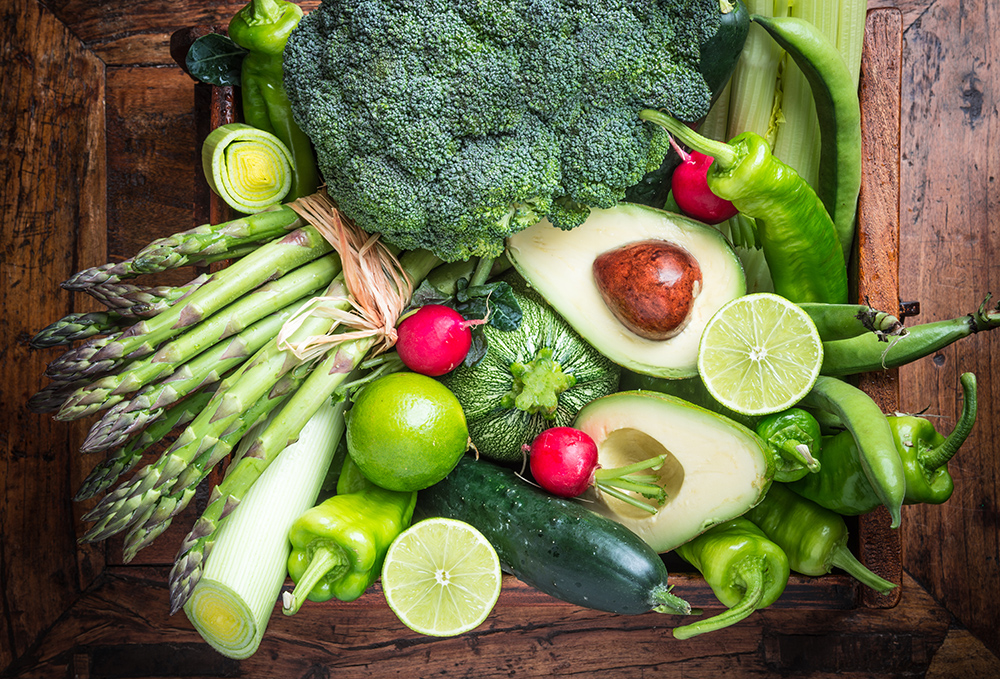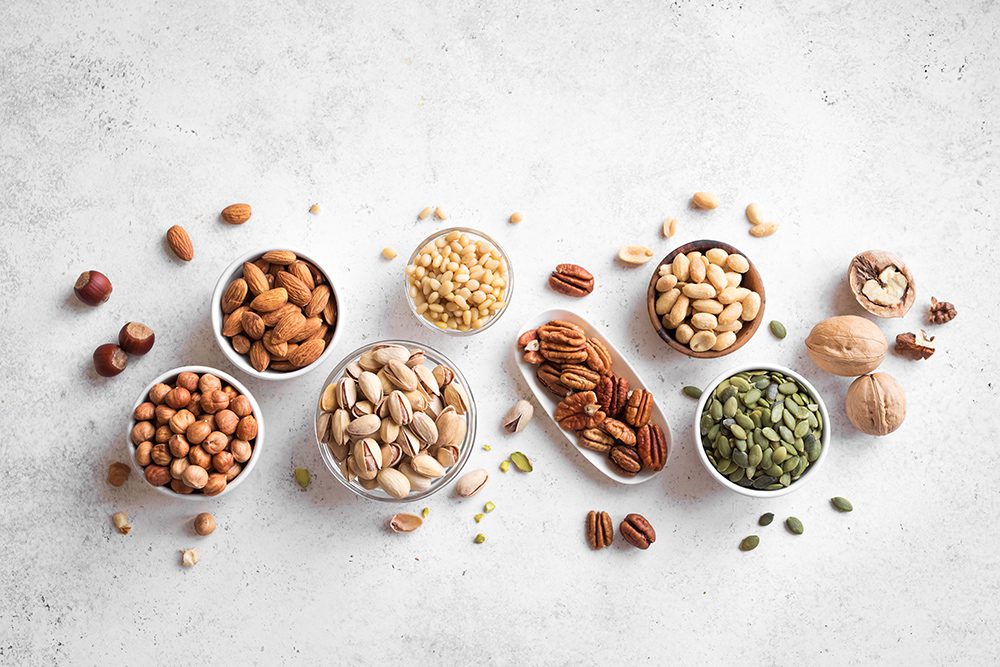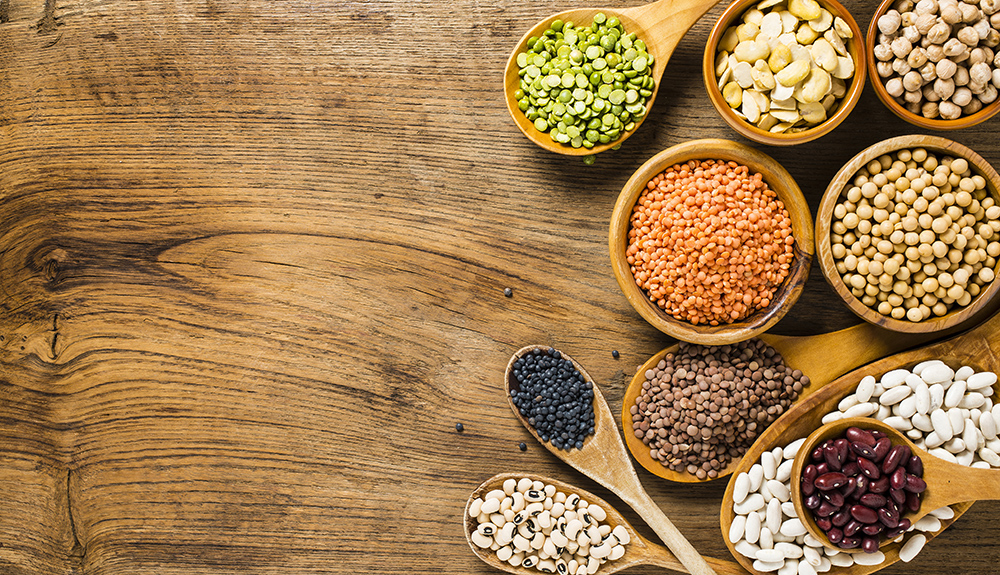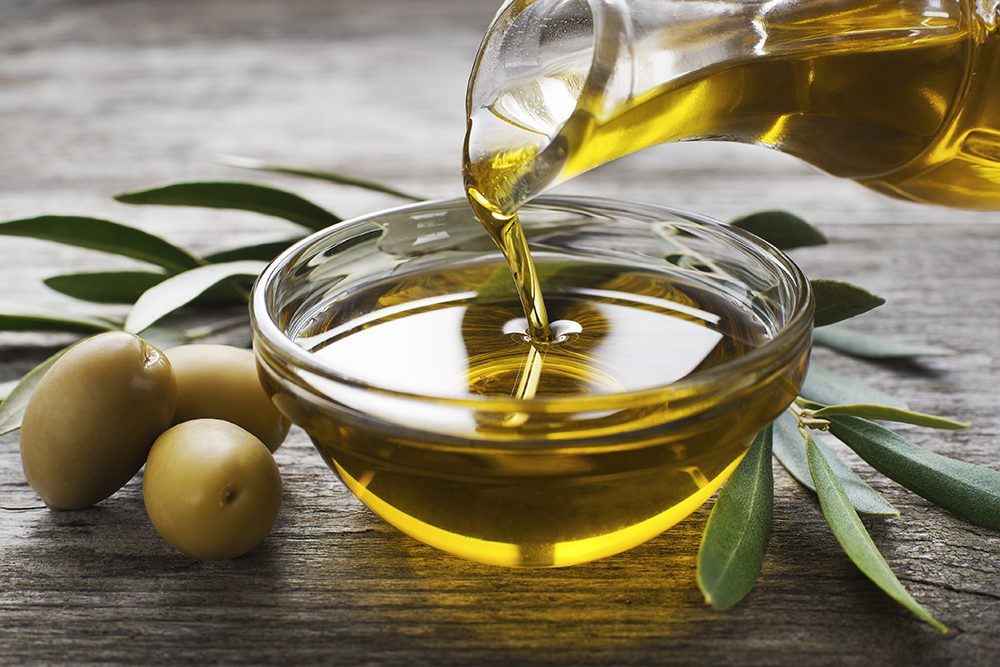As we’ve covered many times in previous articles, the Mediterranean is known to be one of the best diets out there for its incredible health benefits. From helping to improve your brain function to helping to reduce your chances of major diseases, the Mediterranean diet can truly do it all in terms of health and has been famed for it as a result. However, aside from all of its amazing well-known benefits, perhaps one of its biggest benefits that rarely gets discussed in regards to the diet is its natural ability to combat inflammation.
While no specific diet can cure inflammation, many researchers have found that certain foods may be able to help control inflammation, many of which are present in the Mediterranean diet. With that said, in this article, we’re going to talk all about the Mediterranean diet, its influence on inflammation, and how eating and avoiding certain foods may be key to combating inflammation and metabolic syndrome for good.
What is the Mediterranean diet?
To start, to give you a brief overview of the diet itself, the Mediterranean diet is a natural diet based out of the countries surrounding the Mediterranean Sea. This diet puts a heavy focus on plant-based foods, such as leafy greens, fruits, whole grains, olive oil, nuts, and other natural ingredients based around the Mediterranean that ultimately aims to help you achieve a healthier and more sustainable way of living.

With that said, many studies have also been done on the Mediterranean diet that has shown that those that follow this diet regularly have experienced lower rates of heart disease than those that follow a Western diet. As a result, the Mediterranean diet has been ranked as the number one diet for four years in a row by health professionals for its incredible benefits and its flexible diet plan.
What is inflammation?
Now that we’ve briefly covered the Mediterranean diet, we also wanted to quickly go over what inflammation is to begin with. With that said, the term ‘inflammation’ typically refers to an area of the body under physical stress, which is often shown through signs of redness, warmth, and pain. However, certain foods can also cause inflammation.

In fact, it has been shown that processed foods or foods high in trans fats can alter the healthy bacteria in our bodies, triggering an inflammatory reaction that can cause severe discomfort in our body (UChicagoMedicine). This can cause noticeable physical pains, such as aches, fatigue, digestive issues, and swollen lymph nodes.
To follow, it has also been discovered in many studies that bodies that experience high amounts of inflammation are much more likely to develop inflammatory arthritis, liver disease, cardiovascular disease, kidney disease, and other chronic diseases. As a result, inflammation is not something to be taken lightly and should be dealt with as soon as it arises. And surprisingly, an anti-inflammatory diet may be the perfect way to combat it.
Foods that cause inflammation
With that said, now that we’ve gone over a little bit about what inflammation is, we wanted to share a quick list of foods that have been known to cause or trigger inflammation in that body that you should try to avoid as much as possible.
1. Added sugars

To start, the first major ingredient that we are all guilty of overdoing that heavily contributes to inflammation is added sugars. Surprisingly, according to a study on Medical News Today, the average person in America consumes around 17 teaspoons of added sugar per day, while people should generally only be consuming around 5-6 teaspoons a day at most. With that said, you may be overdoing added sugars from foods such as:
- Baked goods such as cake and cookies
- Candy
- Processed cereals
- Granola bars
- Salad dressings
- Yogurt
- Bread
- Fast food
And more. According to research, added sugar, especially when eaten in excess, greatly contributes to inflammation and chronic disease. This is because added sugars can build up in your system and lead to insulin resistance, contributing to metabolic disorders and triggering an inflammatory response. As a result, added sugars should only be eaten in moderation to help reduce your chances of inflammation as well as help lower blood pressure.
2. Refined carbs

Up next, another ingredient most people typically consume too much of that contributes to high levels of inflammation in the body is refined carbs. And according to many studies, most refined carbs are most commonly found in highly processed foods or foods with white flour. Therefore, some of the common foods you might find refined carbs in include:
- Crackers and chips
- White bread or bagels
- Sugary cereals
- White rice
- Pizza
And more. Now, the reason refined carbs are known to trigger an inflammatory response in the body is very similar to sugars that spike insulin and trigger inflammation due to high blood sugar. As a result, this can easily contribute to chronic inflammation and excessive body weight over time and should therefore be consumed minimally.
3. Trans fats

Next on the list is another problematic ingredient known as trans fats. Trans fats are fats that are artificially created through the process of hydrogenation and are considered to be extremely unhealthy as a result. In fact, too much trans fat is believed to raise bad cholesterol in the body, trigger arthritis flares, and even increase your risk for cardiovascular disease, Type 2 diabetes, and stroke. With that said, some foods to watch out for that contain a high amount of trans fats include:
- Baked goods such a pie, muffins, cookies, or cake
- Margarine
- Microwave popcorn
- Fried foods
And more. However, aside from the many other health dangers of trans fats, they have also been shown to trigger inflammation, especially in those already overweight. In fact, multiple studies have found that there’s truly no benefit to trans fats in our diets in general. For this reason, it is recommended that people should aim for less than a single gram of trans fat a day in their everyday diet to help keep their health in check.
4. Processed meats/red meats

Next on the list are processed meat and red meat. This type of meat is high on the list of inflammatory foods because these ingredients have been highly processed through several different stages of salting, fermenting, and smoking, which, in the end, doesn’t leave many nutrients for the body to absorb. Not to mention, these meats are also incredibly high in saturated fat, which can cause inflammation, organ damage and can even raise blood pressure. With that said, some examples of highly processed meats/red meats include:
- Bacon
- Pepperoni
- Sausage
- Hot dogs
- Salami
- Jerky
And more. Not to mention, multiple studies have also shown that higher intakes of processed and red meats can lead to cancer, heart disease, and stroke, all of which go hand-in-hand with inflammation and should be consumed minimally as a result.
5. Omega-6s
And lastly, another ingredient that is often a cause for inflammation is Omega-6 fatty acids. With that said, Omega-6 fatty acids are fats that your body uses for energy that come naturally from a variety of food sources. Some foods that contain a high amount of omega-6 fatty acids often include:
- Corn oil
- Canola oil
- Mayonnaise
- Peanut oil
And more. However, the difficult part with omega-6 fatty acids is that they can be good for your body in moderation, and we actually need them in order to keep our bodies thriving. However, too much of them can have the opposite effect and can trigger an inflammatory response. Therefore, finding a perfect balance of consuming these fats in moderation is key to maintaining a healthy balance in your body.
How does the Mediterranean diet help with inflammation?
Up next, now that we’ve gone over some high inflammatory foods and the negative health results of inflammation, we wanted to share a quick diet study of how the Mediterranean diet and its dietary patterns may, in fact, help to lower inflammation.
With that said, when you dive into the research of the diet in general, the Mediterranean diet comes up as one of the best diets in the world for combating inflammation due to its high anti-inflammatory effects on the body and its versatile selection of essential nutrients. This is because following the dietary basis of Mediterranean cuisine has been shown in many studies to help boost your body with key nutrients that contribute to healthy gut bacteria, which is an essential component in helping to fight inflammation.
Not to mention, the nutrients found in the Mediterranean diet are also incredibly protective of your immune system and can also help to lower inflammation as a result. Therefore, no matter which way you look at it, the Mediterranean diet is incredibly healthy for your body and may be one of the best dietary plans to help with reducing inflammation in the body as a result.
Anti-Inflammatory Diet Foods List
Now that we’ve gone over the many aspects of the Mediterranean diet, inflammation, and how these two work side-by-side, we wanted to share a quick, in-depth list of some of the key foods of the Mediterranean diet that follow an anti-inflammatory eating pattern to help improve your overall health.
For busy schedules, we recommend PureTrim as a way to get the same nutrients from a Mediterranean diet.
1. Leafy greens

To start, the first on the list of anti-inflammatory foods for the Mediterranean diet is leafy greens. While this is typically an essential ingredient for every diet plan, leafy greens, in terms of anti-inflammatory foods, are rich in essential nutrients that can truly provide your body with endless health benefits that can help with many chronic diseases. This typically includes leafy greens such as:
- Spinach
- Kale
- Broccoli
- Brussel sprouts
- Asparagus
- Chard
- Collards
And more. Obviously, leafy greens, in general, are rich in a variety of essential vitamins and minerals, such as Vitamin A & K, that greatly benefit different parts of our body, as well as help our brain and bodily function.
However, in terms of inflammation, leafy greens are known to have a positive effect on the body, as they are also rich in magnesium and Vitamin E, which are both often known for their ability to help lower inflammation. For this reason, incorporating plenty of leafy greens from the Mediterranean diet into your daily consumption can not only help you to improve your health overall but may also help you to keep inflammation away.
2. Fish

Next up, another one of the anti-inflammatory foods of the Mediterranean diet is fish. While not everyone may eat fish, fish is indeed one of the richest food sources for essential fatty acids and other nutrients that keep your body thriving. With that said, this typically includes oily fish such as:
- Sardines
- Mackerel
- Salmon
- Trout
- Herring
- Albacore tuna
And more. With that said, these fish listed above are known to be rich in inflammation-fighting omega-3 fatty acids, which can have anti-inflammatory effects by reducing inflammatory-causing proteins in your body. As a result, fish is an important part of the Mediterranean diet and is a great way to incorporate these properties into your daily life.
3. Nuts/seeds

Up next, nuts and seeds are another one of the essential anti-inflammatory diet foods of the Mediterranean diet and are rich in monounsaturated fatty acids, proteins, calcium, zinc, and fiber that can help with weight loss and may be able to stop hypertension. This typically includes a versatile selection of nuts and seeds, such as:
- Almonds
- Cashews
- Macadamia nuts
- Pine nuts
- Hazelnuts
- Pumpkin seeds
- Sunflower seeds
However, aside from this, nuts and seeds are also an excellent source of Vitamin E and Magnesium, both of which are known to be linked with a lower risk of diabetes, better heart health, and anti-inflammatory properties in general. As a result, these are an excellent source to get them from that can help to keep your body thriving and may be able to provide you with a decreased risk of chronic inflammatory diseases as a result.
4. Legumes

Next on the list of the best anti-inflammatory Mediterranean diet ingredients is legumes. Legumes come in a variety of different sources and are known to be rich in fiber, protein, magnesium, zinc, potassium, iron, and other essential ingredients that may be able to help with high blood pressure. With that said, legumes typically consist of:
- Beans
- Peas
- Pulses
- Peanuts
- Lentils
- Chickpeas
And more. But aside from the properties listed above, legumes are also rich in several antioxidant and anti-inflammatory compounds that have been shown to help with inflammation by supporting healthy gut bacteria. Not to mention, legumes also digest much slower and, as a result, are much slower to turn to blood sugar. Because of this, this may be able to help lower inflammation, as slow-digesting diets have been known to do so.
You can read more about this and other inflammatory foods here on health.harvard.edu.com.
5. Extra virgin olive oil

And lastly, a main component of the Mediterranean diet is extra virgin olive oil. And no, it isn’t just because of the delicious flavor. In fact, olive oil has been known to be full of heart-healthy monounsaturated fat and is richly packed with a variety of antioxidants, such as oleocanthal, which has been shown to help reduce inflammation in the body and may even help to strengthen the immune system. And, according to Healthline, olive oil has even been compared to that of Ibuprofen as a result of this, as it has shown incredible anti-inflammatory benefits that are very similar (healthline.com).
Of course, despite these comparisons, olive oil and other ingredients should never be used in place of medicine or taken over the expert advice provided by a doctor or medical expert. For that reason, make sure you always consult your doctor for any and all nutritional needs before delving into the Mediterranean diet or making any other dietary change.
Conclusion
In conclusion, the Mediterranean Diet is easily one of the best anti-inflammatory diets out there for its high nutritional values, its natural ability to combat disease, and so much more. And although inflammation can sometimes be difficult to combat, the Mediterranean diet has proven in many different studies over time that it truly has all the necessities that you need to reduce your chances of experiencing chronic inflammation and may be worth looking into as a result.
Above all else, we hope this article has helped you to better understand the Mediterranean diet, how it can help to fight inflammation, and why it may be one of the best choices in diets for improving your overall health and well-being.
Sources:
https://www.health.harvard.edu/staying-healthy/the-best-anti-inflammatory-diets
https://www.eatingwell.com/article/2061785/anti-inflammatory-mediterranean-diet-plan/
https://www.mynetdiary.com/foods-to-fight-inflammation.html
https://health.clevelandclinic.org/5-foods-that-can-cause-inflammation/


